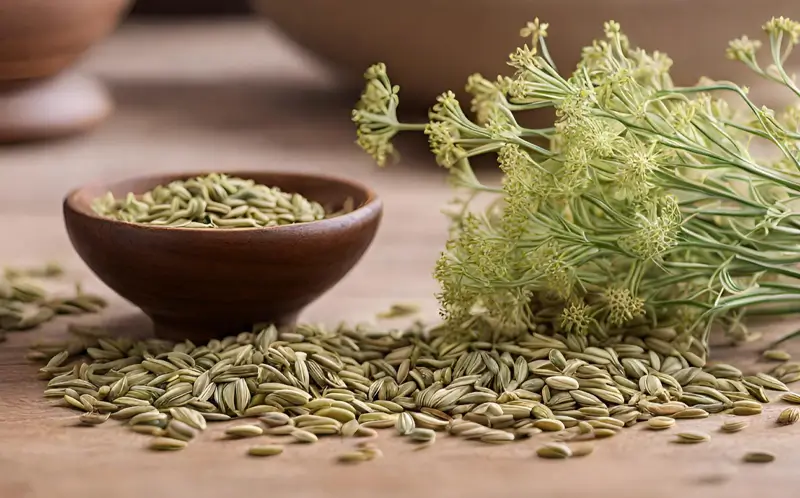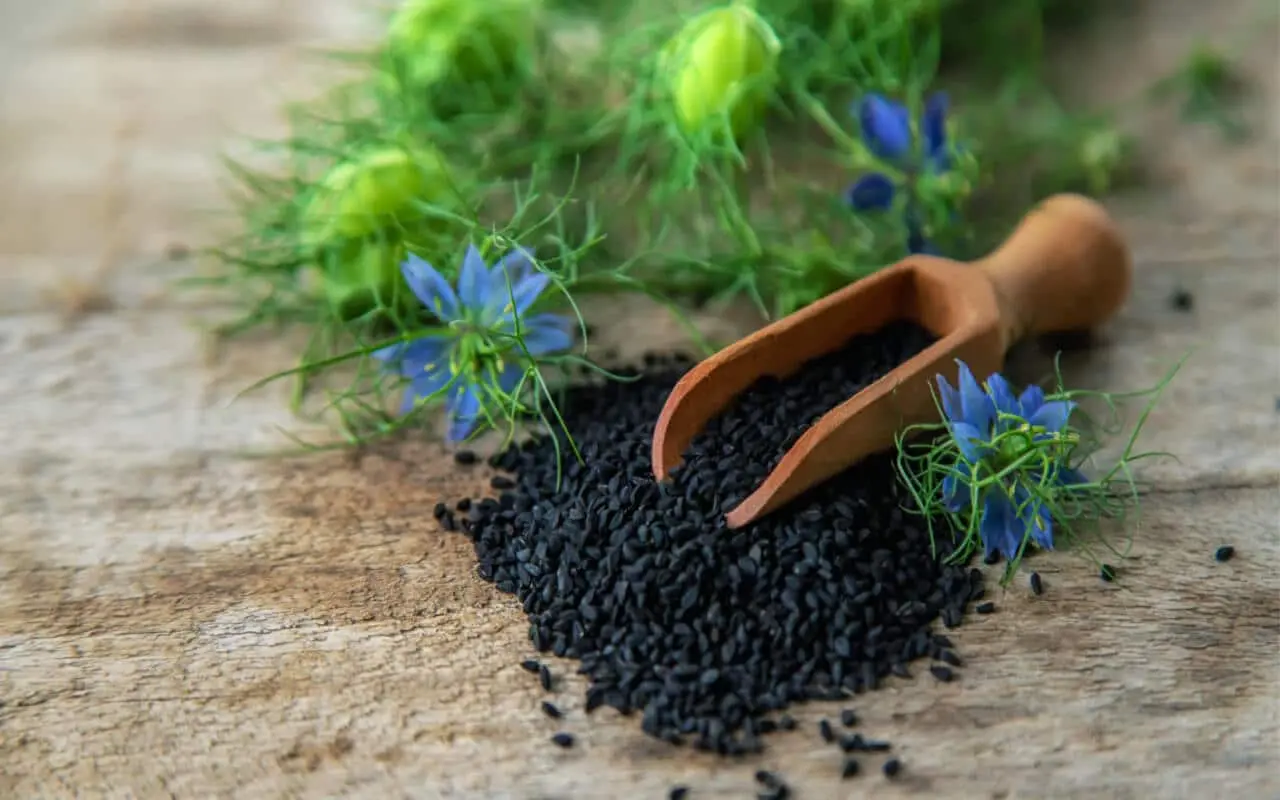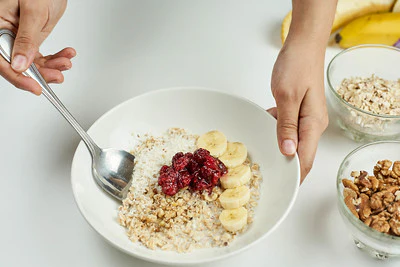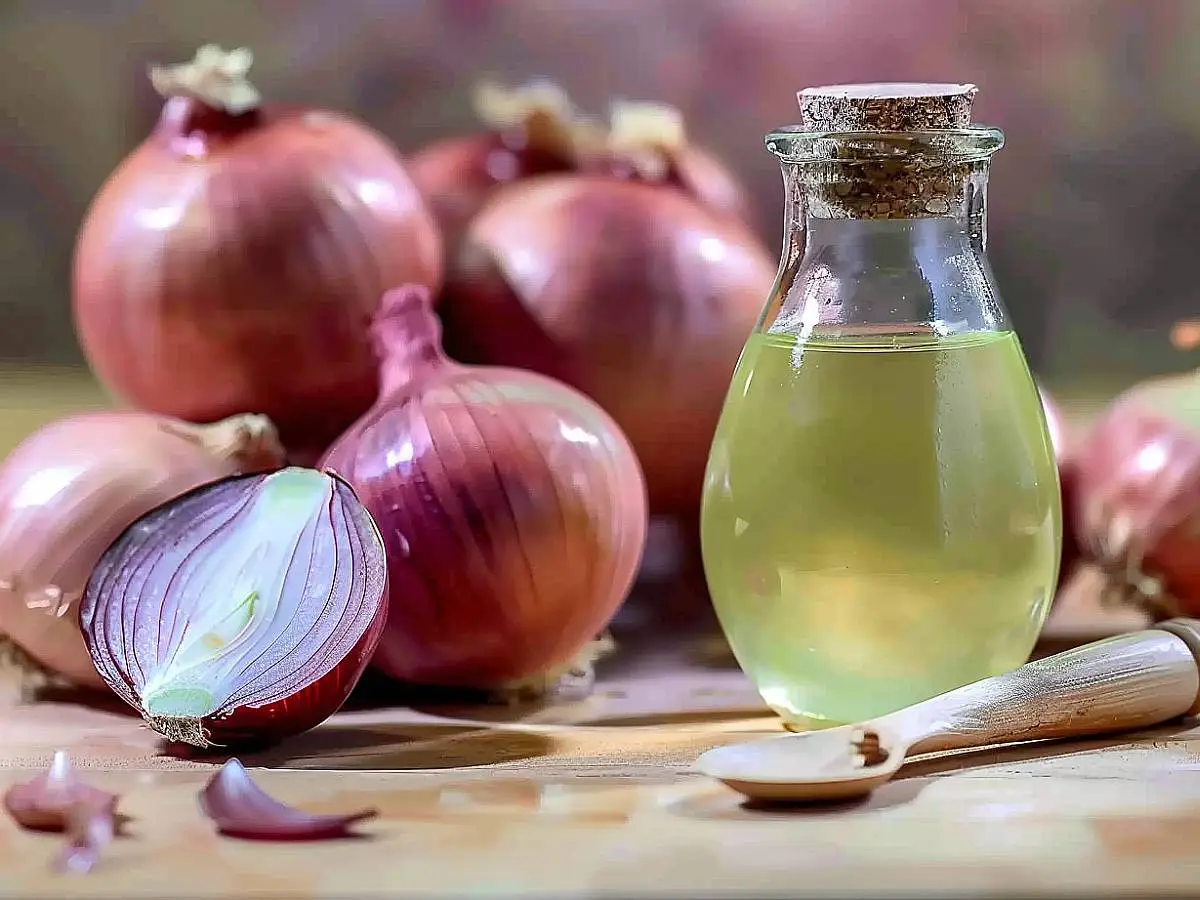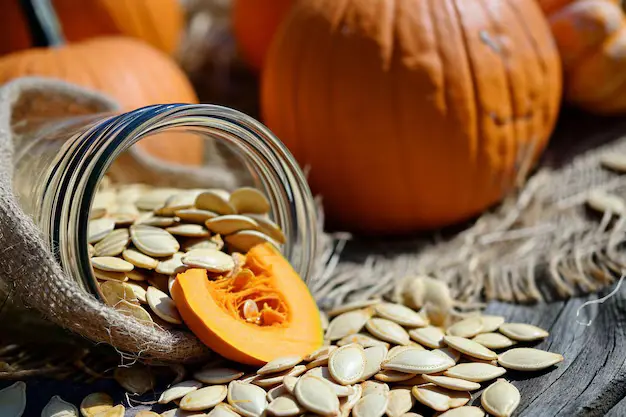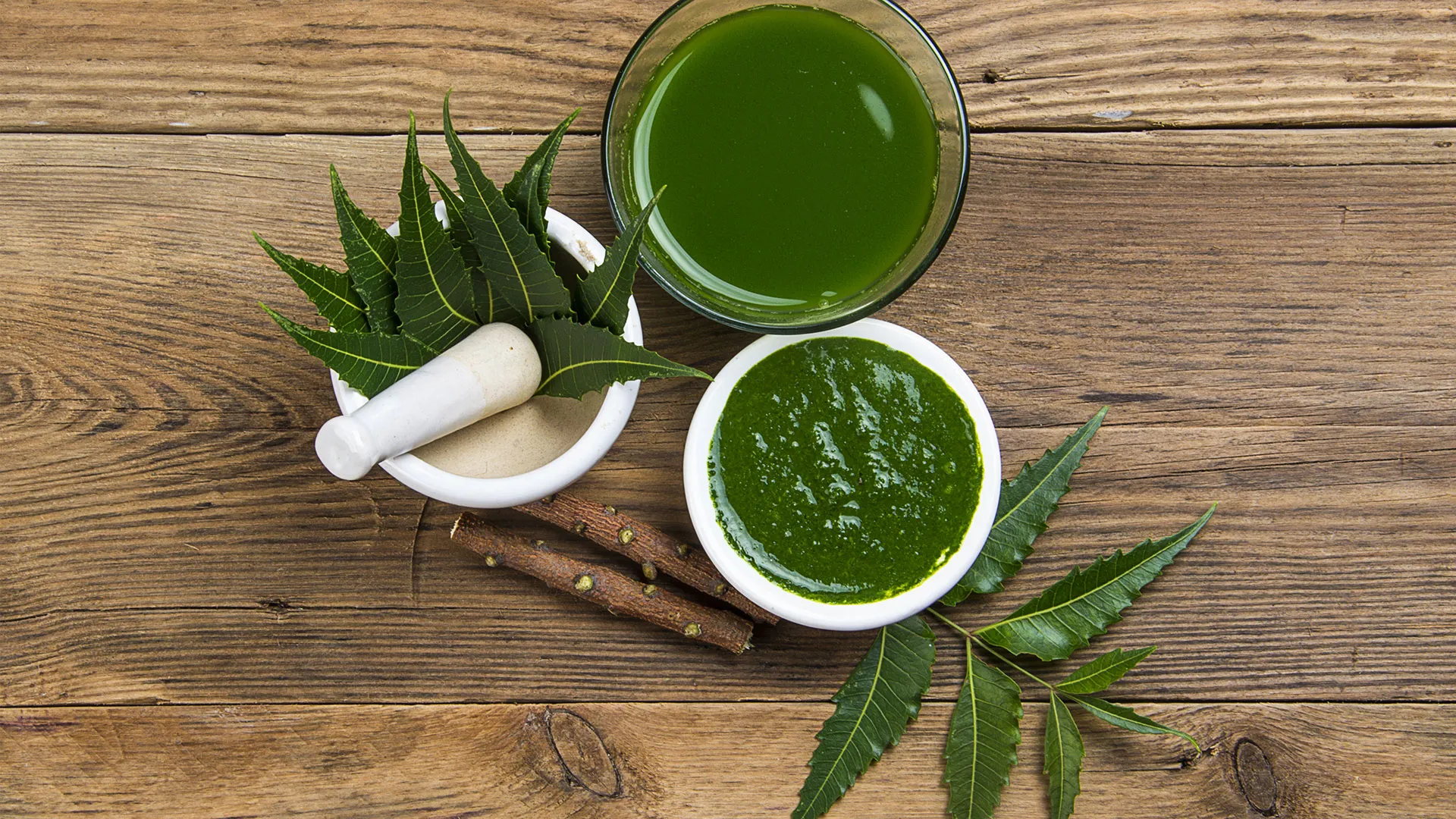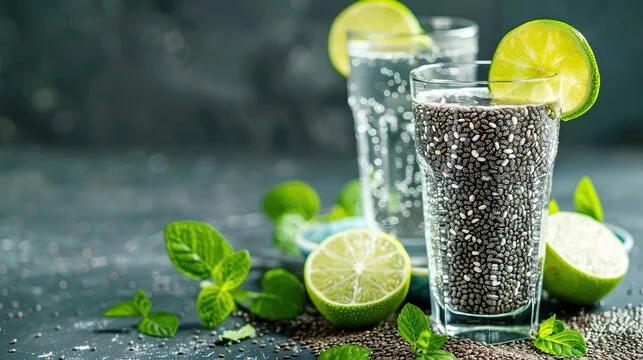Foeniculum vulgare, or fennel, has a pale bulb and long green stalks. It can grow almost anywhere. All parts of the fennel plant, including the bulb, stalk, leaves, and seeds, are edible, and funnel seeds are a spice harvested from one of several types of these herb fennel plants with sweet, powerful flavor that’s similar to licorice.
In this article, we detail the health benefits and nutritional content of fennel seeds.
Fennel Seeds Nutritional Facts
Nutrition facts for one teaspoon (2 grams) of fennel seeds are:
- Calories: 7 kcal
- Fats: 0.3 g
- Protein: 0.3 g
- Carbohydrate: 1 g
- Fiber: 0.8 g
- Potassium: 34 mg
- Calcium: 24 mg
- Iron: 0.37 mg
- Magnesium: 7.7 mg
- Manganese: 0.13 mg
Health benefits of fennel seeds (سونف)
1) Eliminates bad breath
Fennel seeds are packed with an aromatic essential oil and boast antibacterial properties that work overtime to freshen your breath. The magic doesn’t stop there. These sweet little seeds stimulate saliva production, creating a hostile environment for odor-causing bacteria.
Want to give it a try? Munch on 5-10 fennel seeds after a meal for a naturally fresh smile. It’s a simple, effective, and all-natural way to combat bad breath problems.
2) Improves digestive health
Are you struggling with bloating, indigestion, or constipation? Packed with essential oils, these seeds stimulate the production of digestive juices and enzymes, helping your body break down food efficiently. The compounds anethole, fenchone, and estragole work as a dream team to soothe digestive discomfort by reducing inflammation and spasms.
For optimal results, consider sipping on fennel tea. It’s a gentle yet effective way to promote a healthy gut.
Fiber Powerhouse
Don’t be fooled by their size; fennel seeds are packed with fiber. This dietary superstar helps regulate bowel movements, preventing constipation and promoting regularity. Plus, a fiber-rich diet has been linked to a lower risk of heart disease. So, by incorporating fennel seeds into your routine, you’re not only supporting your digestive health but also giving your heart a boost.
3) Fennel Seeds consumed With Almonds Improve Eyesight
Consuming fennel seeds before going to bed improves eyesight. You should eat 2 almonds with one spoon of fennel and results will start coming in a few days. While these suggestions may appear harmless at first, it is important to approach them with a degree of caution.
Fennels are enriched with vitamin A, which is an essential nutrient for eye health. Almonds are also rich in vitamin E and omega-3 fatty acids, which further aid the health of the eyes.
Vitamin A plays an important role in the health of the retina and the ability of the eye to see well even in low light. Almonds protect the eyes from oxidative damage as it is rich in Vitamin E. Its other component, Omega-3 fatty acids are essential for the cell membranes present in our eyes.
4) Funeel Seeds Benefit breastfeeding women
Fennel has long been touted as a natural galactagogue – a substance that can increase milk supply in breastfeeding moms. The science behind this claim is a bit murky, though.
Studies suggest that fennel might boost milk production by increasing prolactin levels, a hormone essential for breastfeeding. Compounds like anethole, found in fennel, are thought to be the culprits behind this potential milk-boosting effect.
However, not all research supports these findings. In fact, some studies have shown no significant increase in milk supply or baby weight gain when moms consume fennel. What’s more, there have been reports of negative side effects in babies whose moms drank fennel-containing lactation teas, including poor weight gain and feeding difficulties.
5) Improves Heart Health
Fennel contains significant amounts of fiber. Fiber decreases the risk of heart diseasesas it helps reduce both serum cholesterol and low-density lipoprotein (LDL) cholesterol in the blood.
Vitamin B-6 and folate found in it prevent the build-up of a compound called homocysteine by converting it into a different compound, methionine. When excessive amounts of homocysteine build-up, it can damage blood vesselsTrusted Source and lead to heart problems.
Ways to incorporate fennel seeds into your meals:
Here are some creative ways to incorporate fennel seeds into your meals:
Spice Up Your Salads: Sprinkle toasted fennel seeds over fresh greens for a crunchy, flavorful twist. Pair them with citrusy dressings for a refreshing combination.
Elevate Your Bread: Add ground fennel seeds to your favorite bread recipe for a subtle licorice kick. They pair exceptionally well with whole wheat or sourdough bread.
Enhance Soups and Stews: Infuse your soups and stews with warmth by adding fennel seeds during the cooking process. They complement hearty winter dishes perfectly.
Create Aromatic Curries: Fennel seeds are a staple in many Indian curries. Toasting them before adding them to your curry paste releases their full flavor potential.
Flavor Your Pasta: Toss cooked pasta with olive oil, grated Parmesan cheese, and a pinch of toasted fennel seeds for a quick and delicious meal.
Sweeten Up Your Desserts: Don’t be afraid to experiment with fennel seeds in desserts! They add an unexpected twist to cookies, cakes, and ice cream.
Also read: Weight loss diet

